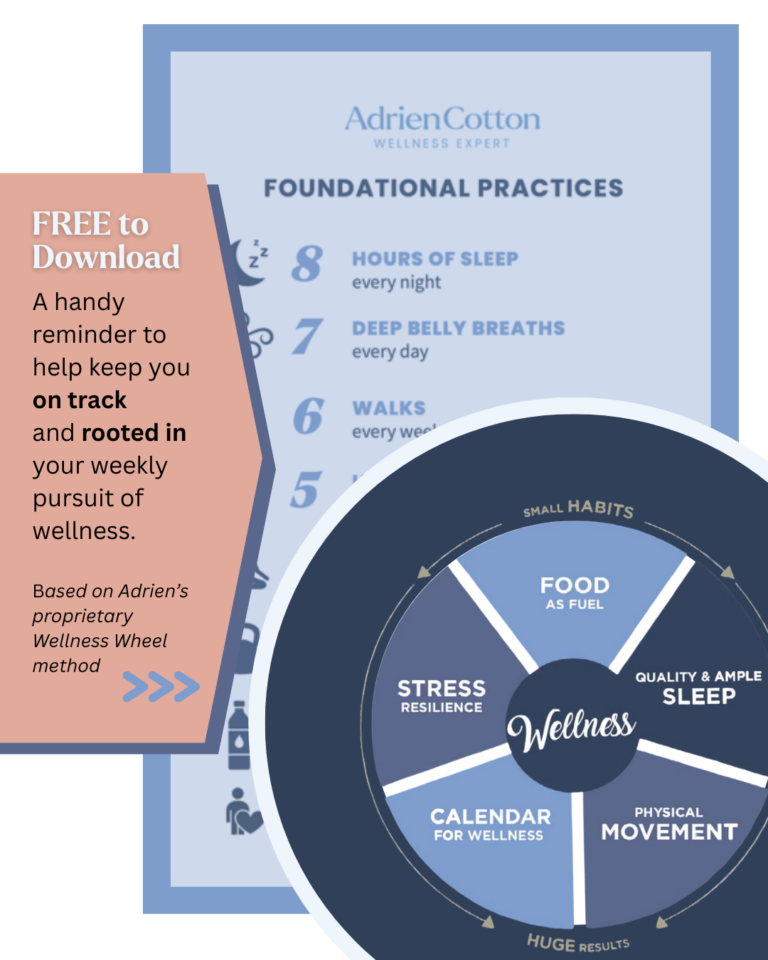Menopause. We all know one day or another it’s going to happen. When this transition comes our way, the symptoms often exceed our expectations. Maybe you anticipated a hot flash here or there, followed by throwing away the remaining “supplies” you accumulated over the years. Yet, there are countless other unwelcome symptoms that just might surprise you.
Menopause, the phase we enter after 12 months without our cycle, brings a wave of change that affects almost all of daily life. From hot flashes and night sweats, to mood swings, to physical and emotional discomfort, menopause can make daily life feel uncomfortable and frustrating. Most of these changes are caused by the depletion of estrogen and other hormones that we have become used to in our lives – since we can remember.
If you can believe it, science is just getting up to speed on the impact of menopause. It is a relatively new science. It’s no wonder why so many women, including my clients, feel completely in the dark about what’s going on with their changing bodies! Our body – and specifically our nervous system – is being, quite literally, rewired. Our brains are genuinely changing. The last time our bodies changed this much was during puberty. To ignore this fact is to be, well…short sighted or, worse, miserable.
Knowledge is power when it comes to stopping menopause from stopping you. More important, menopause doesn’t have to be that hard. There are ways to address it that cost nothing but a fresh perspective.
I’ve created a list of 3 unexpected things menopause affects to help you better understand your body. With this new clarity for frustrating moments of “Why am I feeling this way?”, you can begin to take back control of your life and be more gentle on your body and mind as it translates these new changes.
1. Memory and Cognition: Do you find yourself misplacing your keys, glasses, or phone more now? Are you finding it more difficult to complete work for deadlines – although you’re usually laser focused? With the changing hormones, your brain can legitimately feel foggy. I affectionately call this “menofog”. Between our busy work schedules, caring for family members, and tending to our growing list of responsibilities, our brains are constantly overloaded. On top of that, when we layer on menopause, and changing hormone levels, we become more forgetful, and it can be more challenging to focus on the task at hand. Therefore, now more than ever, it is important to avoid multi-tasking and overscheduling, and give our bodies and brain the care they need to perform optimally.
2. Your Cardio Habit HITTS backfires (haha): Gone are the days of extended cardio to drop 3 pounds (think about how much that 3 pounds really means to you). During menopause, not only could that exercise pattern contribute to injury, but it also elevates cortisol (your fight or flight hormone) levels and induces stress. Listen carefully again: high intensity exercise can backfire in this phase of life!
Our first line of defense now during menopause is stress tolerance. Our brains are stressed from this massive change of menopause and this alone causes our cortisol levels to elevate. Don’t add to this stress with a high intensity cardio-only routine. Of the massive change in our bodies, adding stress on top of it can make our menopause symptoms worse. This type of exercise program can even add to weight gain, illness and much more. If you love your intense cardio like I do, alternate, or sprinkle it with meaningful, intentional, and quality movement. Add some load too! We benefit from a variety of training which builds our muscles that are depleting practically by the minute. Go for a long walk, try out yoga, or incorporate strength training at whatever weight feels comfortable for you.

3. Sleep Disruptions: I know I know. I talk a lot about sleep. This is because during perimenopause and menopause we need it now more than ever. It prevents cravings. It builds our stress resilience in the face of our busy days. It wards off illness. We also build muscle during sleep! Sleep disruptions are a primary “core” symptom of perimenopause and menopause. This is the result of many changes in the body, including our new inability to adjust to temperature variations. During possibly our busiest time of our lives, our minds race, our lists build and shutting off that voice in our head can be challenging.




